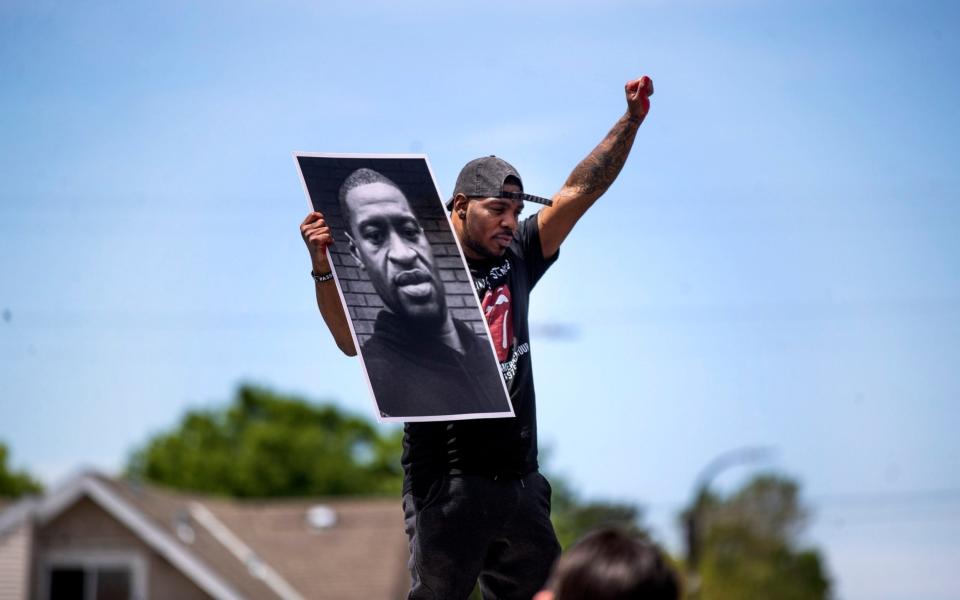Independent autopsy reveals George Floyd died from 'asphyxiation' as lawyers call for first-degree murder charges

A medical examiner in Minnesota has classified George Floyd's death as a homicide, contradicting a preliminary report which found “nothing to support strangulation” as cause of death.
Mr Floyd died after a police officer kneeled on his neck for more than eight minutes, despite his cries that he could not breathe.
The African-American’s death, captured on video, has sparked protests in Minneapolis that have spread to dozens of cities around America.
The Hennepin County Attorney's Office’s report, released on Monday, said Mr Floyd’s heart stopped as police restrained him and suppressed his neck, preventing him from being able to breathe.
"Decedent experienced a cardiopulmonary arrest while being restrained by law enforcement officer(s)," the report read. Under "other significant conditions" it said Mr Floyd suffered from heart disease and hypertension, and listed fentanyl intoxication and recent methamphetamine use.

Findings published last week by the Hennepin County Attorney's Office concluded that the "combined effects of being restrained, potential intoxicants in Mr Floyd’s system and his underlying health issues, including heart disease," likely contributed to his death.
It came after the result of an independent autopsy commissioned for Mr Floyd's family found that he died of asphyxiation due to neck and back compression when a Minneapolis police officer kneeled on his neck for several minutes.
The autopsy said the compression cut off blood to Mr Floyd's brain, and weight on his back made it hard to breathe.
The new autopsy was released on Monday by forensic pathologist Dr Michael Baden, who also examined the body of Eric Garner, a black man who died in 2014 after New York police placed him in a chokehold and he pleaded that he could not breathe.
He found that compression cut off blood to Mr Floyd's brain, and the weight on his back made it difficult for him to get enough oxygen.
Dr Baden said the second autopsy showed that Mr Floyd "had no underlying medical problem that caused or contributed to his death."
He said the belief that someone is breathing if they can talk "is not true". "I am talking and talking and talking and not breathing in front of you," he said.
The officer, Derek Chauvin, had his knee on Floyd's neck for 8 minutes and 46 seconds in total and two minutes and 53 seconds after Mr Floyd was unresponsive, according to a criminal complaint released by the Hennepin County Attorney's Office.
Mr Chauvin is charged with third-degree murder and second-degree manslaughter.
Benjamin Crump, a lawyer for the Floyd family, has now called for the Minneapolis police officers to face the more serious charge of first-degree murder, based on the new findings.
The other three officers on scene, like Mr Chauvin, were fired the day after the incident but have not been charged.
"Beyond doubt he would be alive today if not for the pressure applied to his neck by officer Derek Chauvin and the strain on his body by two other officers," Mr Crump told a press conference. "The ambulance was his hearse."


